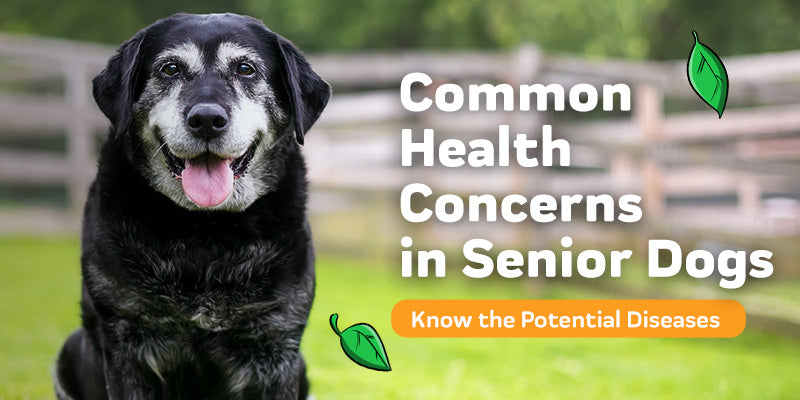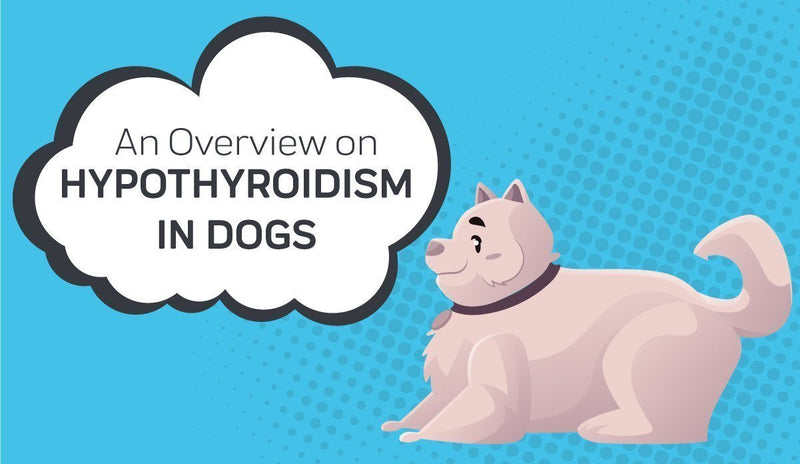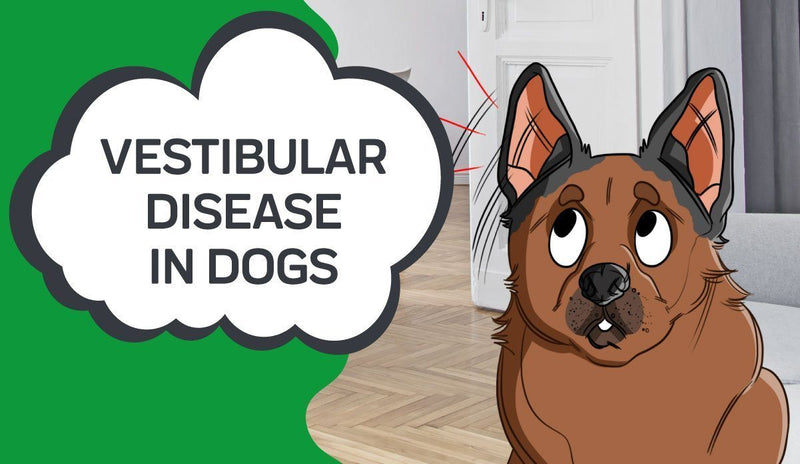
Did you know puppies can have urinary tract infections, or UTIs? If you aren't prepared for it, you may not suspect a puppy bladder infection and may wonder why your puppy is struggling so hard to be house trained. In fact, many people file away puppy frequent urination as a behavior problem, miss the signs of a serious illness, and make house training an upsetting experience. Read all about UTI in puppies here.
Puppy urinary tract infections are pretty common. In fact, we are discovering that there are more instances of them than we previously knew.
As the name suggests, a puppy urinary tract infection is an infection in their urinary tract that makes them lose control of their bladder and need to pee more frequently. If your puppy is having accidents in the home, it may not be by choice or lack of training, they may not physically have any control over it. Trying to train this out of them will be impossible and hurtful to the puppy and you may be missing signs of a more serious disease.
Understanding the Puppy Urinary Tract
The urinary tract is a system involving the processing and removal of waste through urine, water handling, salt handling, the production of multiple hormones, and the processing of Vitamin D.
It is made up of several parts, the kidneys, the bladder, ureters that connect the kidneys to the bladder, and the urethra that moves the pee from the bladder to outside the puppy.
A puppy UTI can impact the entire urinary tract.
Causes of Urinary Infections in Puppies

Puppy urinary tract infections usually come from a bacterial infection caused by holding their pee too long.
Puppies need to pee very often. As frequently as 1 or 2 hours when they are little to as long as the same number of hours as their age in months. That means a 6-month-old puppy may be able to go 6 hours between peeing. You may want to tweak this a little according to your individual puppy. Smaller breeds will need to pee even more frequently than larger breed puppies. Their bladders are literally smaller and their metabolisms faster.
Frequently taking your puppy out to pee is so important that many shelters and breeders ask potential new pet owners if their schedule will permit as many walks as the puppy will need before allowing them to take the puppy.
There are also fungal and viral infections that can cause a puppy urinary tract infection, so don't rule out a bladder infection because you feel sure you've been taking your puppy out often enough.
Fungal infections typically strike dogs with other illnesses like diabetes or who have been treated for other diseases with surgeries or many antibiotics.
Parasites cause puppy viral bladder infections.
For instance, the Giant Kidney Worm infection causes similar symptoms to a puppy UTI caused by bacteria such as frequent urination and blood in the urine, and it can cause kidney failure, liver damage, and affect other abdominal organs. It is rare, but dogs can be infected by the parasite by simply eating infected raw fish, frogs, or earthworms.
Puppy UTI Symptoms
Sometimes a puppy shows no signs of a bladder infection, or the symptoms may be hard to notice.
You will usually notice that the puppy is reluctant to pee or acts like they are uncomfortable while peeing.
Other symptoms of a puppy urinary tract infection include:

- unusually frequent urination
- unusual, increased, or unexplained accidents
- increased thirst
- decrease in the amount of pee passed
- straining while peeing
- blood or pus in pee
- cloudy or dark pee
- stinky pee
- abdominal pain
- licking around the genitals
- fever
When to See the Vet About a Puppy Bladder Infection
Take your puppy to the vet if they show any of the symptoms mentioned above.
But don't forget that all puppies pee more frequently than adult dogs and that smaller puppies pee more frequently than larger puppies. Consider what is normal for the individual puppy, whether there are other symptoms, and if the puppy is responding normally to house training before assuming that any frequent peeing is a symptom of an infection.
If the puppy does show symptoms, don't hesitate to take them to the vet. The puppy is probably in pain, and their symptoms may be a sign of another, more serious disease. It is also possible that if a puppy UTI is left untreated, it could do permanent damage to their kidneys.
Diagnosing Puppy UTI
The vet will perform a urinalysis to detect signs of an infection and evaluate the puppy's kidney function. They may also do cultures, bloodwork, and x-rays to further evaluate the bladder infection and rule out other problems.
A little note about urinalysis. The first morning's pee, or urine extracted with a needle, is the best sample for a urinalysis.
Other diseases and conditions can share symptoms with or cause a urinary tract infection including:
- Cushing's disease
- diabetes
- kidney failure
- bladder stones
- bladder cancer
If you don't agree with the vet's diagnosis or you take the puppy home and do whatever the vet suggests but the puppy continues to show signs of a urinary tract infection, then go back to the vet or take them to someone else. They may have been misdiagnosed or the puppy may have a recurrent UTI.
Treatment for Puppy UTI
The primary treatment for urinary infections in puppies is antibiotics. When given correctly, they provide pretty quick relief and rid the puppy of infection. Pain medications are also pretty common, unless the puppy doesn't seem to be in much pain. Some vets will always prescribe pain medication to be on the safe side.
Fluid therapy may be needed to clean out the puppy's urinary tract, and bladder stones may require surgery.
Tell the vet if the antibiotics or pain medication seem to be causing the puppy side effects detrimental to the puppy's well-being or the ability to continue taking the medication.
Give the puppy the full course of antibiotics, even if they act well again, or the infection can come back even stronger than before. If the puppy can't take the antibiotic anymore, tell the vet before stopping the medication so they can quickly suggest another treatment.
Puppy fungal urinary tract infections will be treated with antifungal medications rather than antibiotics, and they may require long-term treatment.
Viral infections like the Giant Kidney Worm must be surgically removed. Sometimes one of the kidneys must also be removed.
Preventing a Puppy UTI
As with most diseases, it's better to prevent a urinary tract infection than treat one.
You can prevent puppy urinary tract infections by:
- scheduling walks to suit their bladder's needs
- not confusing the puppy with training it doesn't understand
- give the puppy 24/7 access to clean water
- clean the bowl thoroughly to ensure it doesn't grow bacteria
- cool hot water down by putting some ice cubes in the bowl
- entice finicky puppies to drink water with a pet fountain
- don't feed them a high-grain diet as it makes pee more alkaline and more likely to become infected
- not feeding them raw fish and limiting its eating of outdoor animals like frogs and earthworms
If the puppy has an increased tendency to develop urinary tract infections, you might speak to your vet about probiotics or a special diet.
How CBD Oil Might Help with a Puppy Bladder Infection
CBD oil is showing promise as a safe, natural way to manage many ailments. CBD stands for cannabidiol, a natural chemical found in marijuana and hemp plants with promising healing properties. Most CBD oil manufacturers derive their cannabidiol from hemp because hemp contains a great deal of cannabidiol and virtually no THC, that high-causing chemical that makes marijuana so popular.
CBD oil may manage:
- pain
- inflammation
- anxiety
- depression
- cancer
This may help alleviate the pain and inflammation-causing puppy discomfort. It may also help with anxiety or depression that is causing house training issues. And if your puppy has cancer, CBD oil can be a secondary or alternative method of addressing cancer.
Scientists have discovered that human and dog bodies have an endocannabinoid system, a set of receptors in our bodies that create and use their own cannabinoids. These impact the homeostasis, or natural balance our bodies need to be healthy. An external cannabinoid works very similarly in the body to our natural cannabinoids, potentially increasing our health and wellbeing.
Using CBD Oil
CBD oil manufacturers supply a wide range of products to suit dogs' taste and needs.
But because puppies are small and young, you should probably stick to products that can be dosed in small amounts or broken apart such as:
- oil tinctures
- extract concentrates
- treats for small dogs that can be broken, like soft chews

Extract concentrates are just cannabidiol. This is the most cost-effective CBD oil form and it eliminates the potential for other ingredients to cause a problem for your puppy. It doesn't have any flavoring, and hemp has a strong taste that many puppies may not like, so you may have to mask it in a strong-tasting food or beverage. It can be given by mouth or added to their food.
Oil tinctures are cannabidiol plus a carrier oil and often flavorings. This makes it easier and more enjoyable for the puppy to take cannabidiol. It will come with a dropper or sprayer and can be applied directly to their mouth or in their food. Droppers provide the most control over the dose and may be better for dosing the small amounts puppies need.
CBD Dog Treats are fun, but dosing is limited. Buy the smallest dose of treat and break it apart, if necessary to reach the desired dose. Ensure the treats you buy mix the cannabidiol thoroughly into the treat so breaking it apart yields an even dose.
Dosing CBD Oil
Because puppies are both young and small, they need very small doses of cannabidiol, if they can take it at all. Discuss dosing with your vet so they can consider your puppy's individual weight, age, and health.
The youngest puppies may not be able to take CBD oil at all while the likelihood and the amount increases as they get older.
Risks Associated with CBD Oil
CBD oil is a popular way of safely and naturally managing symptoms of many ailments and side effects of medications. That being said, there are some things to be aware of to keep the puppy safe.
The only known "side effects" of CBD oil are loss of appetite, diarrhea, or sedation, and these occur with excessively large doses. Your puppy may have an increased risk of suffering these side effects because they are so little. Should any of these symptoms occur, stop giving the puppy CBD oil.
CBD oil impacts how the liver absorbs medications, so any medication processed through the liver may require different dosing than normal. This simply means your vet needs to know your puppy is taking CBD oil so they can dose medications and treatments accordingly.
At this time, CBD oil has not received FDA approval. This is because it is simply too soon for all the testing and trials that the FDA requires to have been completed. Consider CBD oil an experimental treatment, to be used for non-life-threatening ailments, as a secondary treatment, or when traditional medications can't be used.
Many vets are supportive and knowledgeable about the use of CBD oil, but not all. If you really think CBD oil is the best choice for your puppy but your vet doesn't agree, you could consult another vet and maybe even a holistic vet.
Purchasing CBD Oil
Make the best CBD oil purchase for your puppy by considering the following information.
The Difference Between Full-spectrum CBD oil and CBD isolate
There are two kinds of CBD oil. CBD isolate is just cannabidiol while full-spectrum CBD oil contains cannabidiol as well as other cannabinoids, terpenes, and nutrients from the hemp plant. It is not known whether one is really more effective than the other, but customers certainly report that one works better for them or their dog than the other.
Because we're discussing a puppy, it may be safer to stick with CBD isolate simply because it is just cannabidiol and that has had more testing and is therefore better understood than the other cannabinoids in full-spectrum CBD oil. If CBD isolate doesn't work for your puppy, you could speak to your vet about trying full-spectrum before giving up on CBD oil altogether.
Third-party Testing
Third-party testing is required because some CBD oil manufacturers have sold products with poor-quality cannabidiol, less cannabidiol than advertised, or no cannabidiol at all.
Make sure you buy your puppy CBD oil that has gone through third-party lab testing. You can do this by checking the manufacturer's website. As an example, we'll show you ours. Each batch is tested by a lab outside of our influence and the results are displayed online. Look for and read the test results for any CBD oil product you consider purchasing to protect your puppy.
Origin
The manufacturer should also tell you where they acquired their cannabidiol. Some manufacturers grow their own hemp while others purchase hemp or cannabidiol from someone else. The important thing is for you to know that the hemp was grown in a country with safe growing regulations.
Extraction method
CBD oil can be extracted in several ways, but the CO2 extraction method is the safest and purest one, so look for mention of this on the manufacturer's website as well.
Read the label
Consider the ingredients in any CBD oil product you consider buying to ensure it doesn't contain unnecessary, unsafe, or allergenic ingredients. The first thing to look for is the number of ingredients. Less is usually always better. If you don't know what something else is, research it to discover if it is really safe for your puppy.
THC
Many CBD oil manufacturers extract their CBD oil from the hemp plant, which is naturally low in THC. But not all. Some use marijuana plants. This is not suitable for puppies, so check the label and the lab test results to ensure there is no THC in the product you are purchasing for your puppy.
Some test results will say something like ND to say no THC is detected while some will show you a very infinitesimal amount of THC. Infinitesimal amounts are still considered no THC because they are too low to have an impact. ND is just an easy, non-confusing way of saying there is too little THC to count. In other words: it's the same thing. If you are concerned about any THC in the product, you could speak to the vet about whether the amount is of concern for your individual puppy.
Consider Innovet when starting your CBD oil journey. We meet or exceed all of the criteria mentioned in this post.
Innovations from Innovet
We like to find creative and eco-friendly solutions to pet problems. If puppy bladder infection is becoming a chronic issue in your home or your puppy is struggling with house training and nothing seems to fix it, reach out to us to see if we can't find an answer.
Sources:
Bacterial Urinary Tract InfectionsLower Urinary Tract Problems and Infections in Dogs
Urinary Incontinence in Dogs
Urinary Tract Infections (UTIs) in Dogs
Cannabinoids in the management of difficult to treat pain
Cannabinoids as novel anti-inflammatory drugs
Approved by:
Dr. Sara Ochoa
Doctor of Veterinary Medicine, St. Georges University

Sara Redding Ochoa, DVM was raised in north Louisiana. She graduated from LA Tech in 2011 with a degree in animal science. She then moved to Grenada West Indies for veterinary school. She completed her clinical year at Louisiana State University and graduated in 2015 from St. George’s University. Since veterinary school, she has been working at a small animal and exotic veterinary clinic in east Texas, where she has experience treating all species that walk in the hospital. In her free time, she likes to travel with her husband Greg, bake yummy desserts and spend time with her 4-legged fur kids, a dog Ruby, a cat Oliver James “OJ”, a rabbit BamBam and a tortoise MonkeyMan.
Thanks for stopping by!
P.S. We Love You!
Sincerely,
The Innovet Team
Please do not ask for emergency or specific medical questions about your pets in the comments. Innovet Pet Products is unable to provide you with specific medical advice or counseling. A detailed physical exam, patient history, and an established veterinarian are required to provide specific medical advice. If you are worried that your pet requires emergency attention or if you have specific medical questions related to your pet’s current or chronic health conditions, please contact or visit your local/preferred veterinarian, an animal-specific poison control hotline, or your local emergency veterinary care center.
Please share your experiences and stories, your opinions and feedback about this blog, or what you've learned that you'd like to share with others.
















